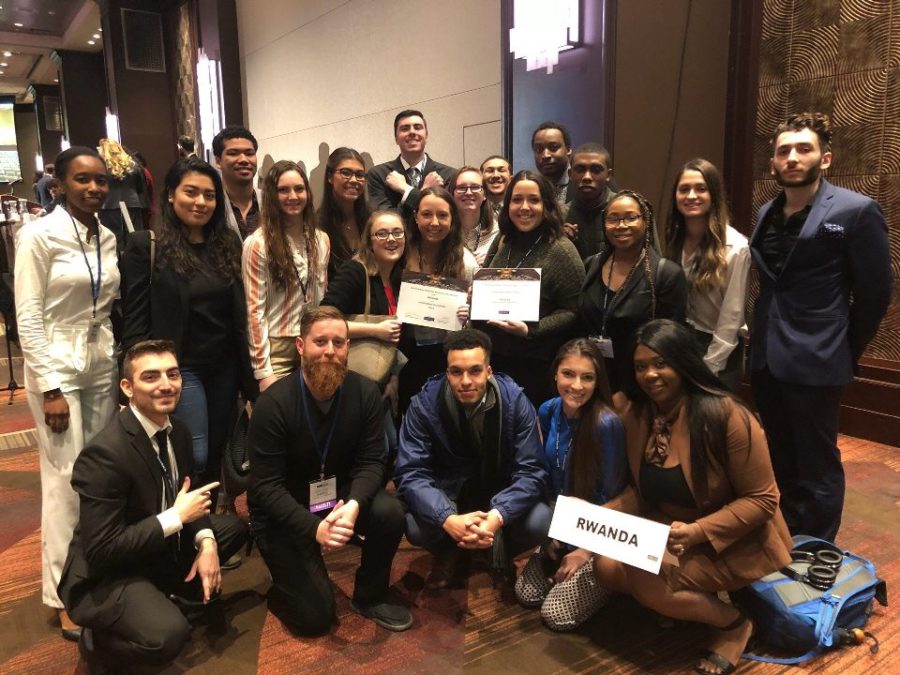Model UN Creating Real-World Experience for Students
Pace prides itself on its ability to help students lead meaningful lives once they graduate. For students interested in politics, one of the cornerstones to a meaningful education is Pace’s Model United Nations (UN) team.
Model UN is an experience for college students, domestically and internationally, to debate global political issues while each college represents a particular country.
At Pace, it is provided as a course called Workshop: International Organization, but students who are not enrolled in the course can join just as teammates.
This semester, students are in committees discussing the Human Rights Commission and the World Health Assembly, with Pace focusing on Germany and Slovenia. Within those broad categories are more specific topics such as the role of future technology in disarmament affairs, HIV/AIDS prevention, environmental health, and a host of others.
The Model UN team typically attends one competition each semester, with this year’s taking place in Washington D.C. The team/class meets once a week with faculty advisor and political science professor Paul Londrigan to prepare for the competition.
“It is generally a time crunch to first understand what the objective is and then the intricate ways to achieve that goal,” said Isaiah Fenichel, a junior political science major who has been a member of Model UN since Spring 2018. “From the time members choose a committee and topic, they are told to research extremely broad categories of information that they likely have no knowledge or experience talking about, essentially becoming ‘experts’ on that topic in five weeks.”
Students spend hours researching their specific topic and their country’s position and policies regarding the topic. Using their research, students write a position paper that reflects the country’s policies and establishes a future plan of action for the country and the surrounding region.
Along with learning about a country’s position on an issue, students also learn proper forms of conduct for competition.
“Many members have no real experience with the United Nations or any parliamentary procedure including correct use of various motions, voting procedure, and effective ways to show that you understand what the UN does and how it operates,” said Fenichel.
To prepare for debates, the team runs in-class debate simulations and practices speeches on the topics students are researching. One Sunday a semester, dubbed “Simulation Sunday,” Professor Londrigan organizes for the team to meet so they can run a three-hour conference experience to go through what an actual competition is like.
While Model UN may appear to be designed for students going into a career in politics, it is for students of all interests and backgrounds.
“Model UN attracts all types of students,” said Professor Londrigan. “We’ve had Lubin students, Dyson students, and nursing students, and obviously political science and global studies majors. I think it really speaks to students that want to have a slightly different experience from the run-of-the-mill college class.”
Due to the rich environment of Model UN, students gain research, writing, and public speaking skills, as well as interpersonal skills because of the competition format where students interact with other students from colleges across the country and across the world.
“It is the most real-life experience that someone who wishes to go into the field of policy-making and implementation can have,” said Fenichel.
Your donation supports independent, student-run journalism at Pace University. Support the Pace Chronicle to help cover publishing costs.


